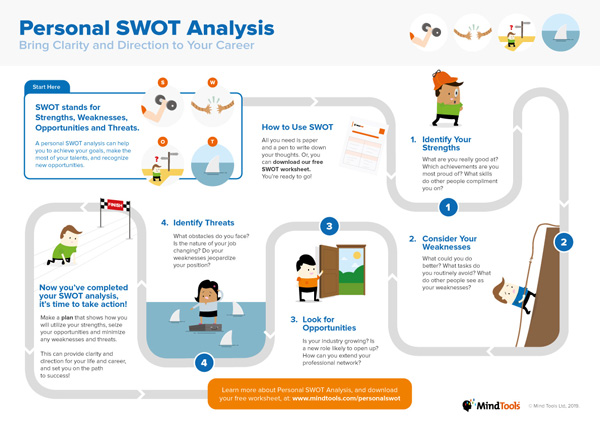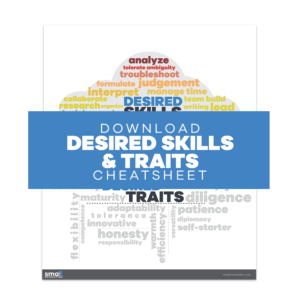Many people have ditched their 9 to 5 jobs to be able to have more freedom. But do you have more freedom? Are you truly working less or is it the other way around?
It all depends on whether you work harder or smarter.
It’s not only about putting in the effort and staying overtime. It’s also about coming up with solutions that will save you time and effort.
This is how Shane Snow puts it in his book “Smartcuts“, where he explains the success of booming startups and big-name companies:
The best paths to success are different today than they were yesterday.
With this quote, we begin our story and uncover what it means to work harder or work smarter.
Work Harder vs Work Smarter: What’s In It For You?
If you’re working remotely it can be challenging to push yourself to work as hard as in a traditional office. The lack of immediate supervision and distractions lurking around every corner can make it hard for you to focus.
To be productive while working from home you need to be a good strategist.
Remote work was science fiction in the time of Abraham Lincoln, but he sure believed in a good strategy when he said:
Give me six hours to chop down a tree and I will spend the first four sharpening the ax.
Sheer force can come in handy, but sometimes it’s not enough to get the job done. Most of the time you’ll need to work hard, hustle, and put in the hours.
But there will come a time when you need to put your muscle away and your inner genius do the talking.
Now, let’s look at what the two concepts really mean.
What Makes Hard Work Hard?
People link hard work to toiling all day and becoming exhausted in the process. We’ve all felt this way at one point or another.
We’re often working under stress, rushing to complete the pending work in due time. And more often than not, there’s plenty of work in the pipeline.
This is why we sometimes feel defeated or over-worked. You know that feeling trying to achieve different results by doing the same thing over and over?
This is where smart work comes in.
What Makes Smart Work Smart?
Hard workers may be more concerned about the quantity of their input. But the problem here is that work quickly turns to drudgery.
Working smart is all about investing less time and effort to perform a task and still getting solid results. That’s why you want to find an easier way to achieve goals while keeping quality in check.
Buckle up! Here’s how to work less and accomplish more.
How to Become a Smart Worker and Stop Wasting Your Time and Energy
Your proclivity to hard or smart work may depend on whether you’re an analytical or a creative thinker. But we all catch ourselves pouring over a task for hours every once in a while.
Nitpicking without allowing yourself to see the big picture can be a waste of your time.
If you want to be a productive online worker you need to work hard to get there. You just want to avoid the worst-case scenario where you’re overworked with poor results.
Which is why you need to walk the line between hard and smart work.
Now, if your job leaves you time-poor and energy-drained, here are a few hacks on how to work smartly.
- Foster creativity. Don’t get stuck in the same thinking patterns. Look for new, creative ways to solve a problem.
- Learn how to take shortcuts. Keep testing your work processes. Search for more efficient models that can save you time.
- Keep your eye on the goal. You need to know your goal in order to get there. So, pack your to-do list with straightforward daily goals.
Want to learn more? Here are a few more tips on how to outsmart yourself.
Learn Time Management Skills
You can’t pack more than 24 hours in a day. We all have to live with this. But only a minority of us have the top-notch organizational skills to make the most of our time.
According to Kirstin O´Donovan, founder of TopResultsCoaching, getting organized at work boils down to:
- Good time management skills
- A good mindset towards your work
She goes on to explain that the first step to take is to get rid of a dysfunctional attitude. To do your job efficiently, you need to:
- End the blame game. Take responsibility for how you spend your time. Don’t blame other people for it.
- Stop self-sabotaging yourself. Don’t let yourself fall into a thought loop, telling yourself over again you won’t be able to make it on time. Start telling yourself the opposite and watch how this mindset affects your results.
- Assess your time management. Be critical of your daily work organization. Ask yourself how you could better prioritize your actions. Be always on the lookout for good opportunities to leverage your time.
Do a Personal SWOT Analysis
SWOT stands for Strengths, Weaknesses, Opportunities, and Threats. It’s a technique used by many businesses to devise their growth strategies.
Using SWOT for personal purposes can get you useful insights on how to move forward in your career.
Looking into your strengths and opportunities can help you realize your potential. While exploring your weaknesses can get you to spot opportunities you would otherwise have missed.
If you look at yourself using the SWOT framework, you can start to separate yourself from your peers, and further develop the specialized talents and abilities you need to advance your career and help you achieve your personal goals.
Mindtools.com
Here’s how SWOT works.

You can start by asking yourself the following questions:
- What are my strengths? Think about your unique abilities, unique certifications, valuable resources, and good networking connections.
- What are my weaknesses? Think about the tasks that are zapping your energy because you’re not as confident with them. Analyze your work habits and find the weakest link.
- What are the opportunities that arise in a given situation? If there’s an open position that allows you to upskill, then take advantage of it. Examine the trends in your company – is there a way you could leverage the situation?
- What are the threats that can threaten my position? Identify the major obstacles you’re facing. Is it a poor work environment, technology advancement, or your own weakness that puts your job at risk?
Set SMART Goals
After you’ve tried the Delphic maxim “Know thyself” in practice, it’s time for goal-setting.
To set an achievable goal you need to do some hard work first (now here’s another perk of being a hard worker).
And hard work pays off when you use the SMART goals framework.
Here’s how it works. The acronym stands for Specific, Measurable, Attainable, Relevant, and Time-Bound. Your goals should match the characteristics.
This technique helps you narrow down goals, define the steps to take, and track your progress.
Let’s look at each of these in separate:
- Specific. Be specific when defining your goal, you’ll be more likely to achieve it.
- Measurable. Track your progress and reward yourself for milestones you’ve reached.
- Attainable. Don’t aim too high. If you’re aiming for a job position, make sure you have the necessary credentials.
- Relevant. If a given goal is not a true priority to you, then it’s a liability. Choose your goals wisely.
- Time-Bound. Give yourself a timeframe. It’s a great motivator.
How to Be a Happy and Productive Remote Worker
So, what’s the bottom line? Find a work routine that doesn’t hurt your work performance or your happiness. Neither should come at the expense of another.
Hard work is great, don’t get us wrong. But when you pepper it with strategic thinking, you’re on to something great.
You may have learned to always play by the book, but at times you have to cut corners.
Go for the golden middle way. Doing hard work and finding quicker ways to get the job done is an ideal love-child between the two methods.
Sign up for our Successful Behaviors and Habits Course and learn how to work online while saving time and effort. It’s not always easy to put your best foot forward in a day-to-day work routine.
Let our industry-leading online training can help you get there.


